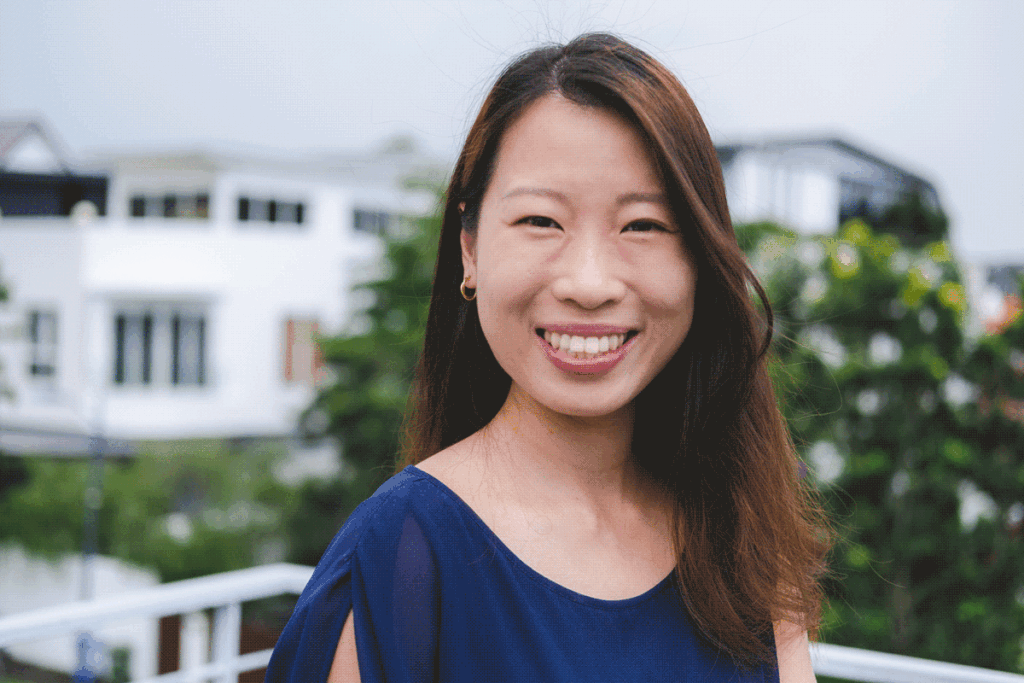The modern world runs on data. A vast ocean of it exists, waiting to be tapped on. For businesses and individuals who are able to collect this data and use them to their advantage, the opportunities seem limitless. Just ask Rachel Sng, who has recently joined the National University of Singapore (NUS) Master of Science in Business Analytics (MSBA) programme, and been awarded the Singapore Digital (SG:D) Scholarship by the Infocomm Media Development Authority (IMDA).

Rachel Sng, Master of Science in Business Analytics
Witnessing the changes first-hand
An accountancy and business graduate, Rachel has worked in Procter and Gamble as well as Shopee—mainly in finance roles—for the past four years. Her responsibilities have revolved around advising business teams on various issues such as revenue growth, cost control, and methods of profit margin improvement. A crucial part of her work involves performing financial analysis. To do this well, she needs to be able to boil down lots of data into actionable insights and clear decisions.
The tsunami of data that looms over businesses today is something she has seen first-hand. One of her projects required her to analyse data on weekly promotions for thousands of products in one country. This amounted to almost 200,000 lines of data a month, which she confessed was almost impossible to do frequently and efficiently using traditional tools like Microsoft Excel. This convinced her that the business analytics skillset was invaluable, not just for her personal development, but also for businesses in general.
Building up future-ready skills
Initially, Rachel sought to build up her competencies through online courses, but over time she realised that gaps remained. She needed a deeper understanding and a more comprehensive set of skills to fully tackle not only the challenges that she faced in her work, but also the ones that she foresaw coming. She needed more than a short course; she needed a full degree programme.
Her first choice for a school was clear. With its strong industry partnerships in Singapore, a hands-on curriculum and consistent ranking among the world’s best, NUS was the perfect university for her to select her course from.
She shared that the MSBA course programme had three key curriculum components which made it attractive for her to pursue; the coursework components being based in computer science, mathematics as well as business. Rachel elaborates that all three key curriculum components are necessary for a professional dealing with data analytics. The computer science aspects cover how to implement appropriate codes (such as Python and SQL) while Mathematics aspects allow students to learn the logic behind algorithmic codes, as well as the application of correct models and frameworks in data collection and interpretation. Finally, business-centred aspects of the course are designed to help learners develop presentation skills, and learn how to scope and frame derived analysis results into reports that business stakeholders will find impactful and useful.
The IMDA SG:D Scholarship
Having set clear goals and identifying what programme she would join, Rachel learned of the SG:D Scholarship offered by IMDA. Geared towards grooming local tech and media talent in Singapore, the scholarship was very attractive.
On top of paying for the tuition fees, the full-time SG:D Scholarship (Postgraduate) offered a monthly stipend, pre-studies allowance and funding support for upskilling courses beyond the curriculum. Additionally, scholarship recipients would be invited to talks to deepen their understanding of various tech fields. These events would also open up opportunities to network with past and present scholarship recipients and industry experts. Additionally, scholarship recipients have the flexibility to choose any organisation in any industry in Singapore as long as it is a tech role to fulfil their bond requirements, subject to IMDA’s approval.
Charting her path for the future
Rachel applied for the NUS MSBA and the IMDA SG:D Scholarship, and having secured both, is now on her way to graduate in 2022. Armed with her Master’s degree, she aspires to become a data analyst in consumer-facing industries such as eCommerce or Fast-Moving Consumer Good (FMCG) industries. Noting that there has been an extended talent shortage in the field in Singapore, she believes that her skills and knowledge will remain in high demand when she re-joins the workforce.
In the meantime, she is keeping an eye open for potential job openings, and appreciates that her faculty for assisting her throughout this process. She points out that NUS Business Analytics Centre regularly organises networking talks for students to better familiarise themselves with how leading companies harness analytics. Apart from industry insights, the talks allow students to get to know the companies better, and get glimpses into the working life in these organisations. Such initiatives give students an advantage when they set out on the next stage of their careers.
With her clearly defined goals, the business analytics skillset that she will gain from the NUS MSBA and the support provided by IMDA’s SG:D Scholarship, she is well-equipped to navigate her way through the turbulent tides of the future, to make an impact and contribute to Singapore’s data analytics landscape.
This article was written In Partnership with IMDA
For more information on the NUS MSBA, click here.
Learn how the SG:D Scholarship can help accelerate your tech or media career here.
Other mention: NUS SCALE